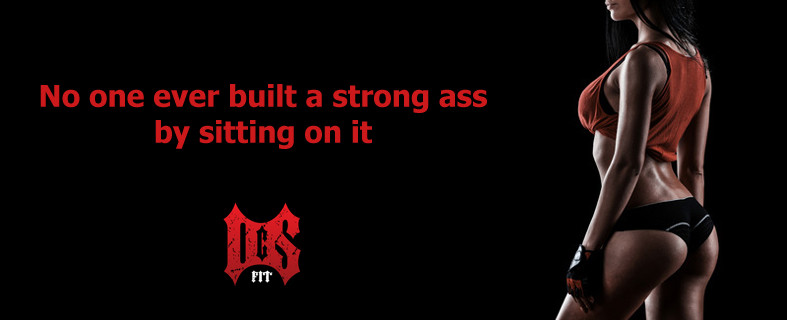TOO MUCH WORK TO WORKOUT
In the first in this series, I touched on the idea that excuses and motivational issues could be the limiting factor in achieving your physique and fitness goals.
Let’s have a look at one of these issues in detail and see if we can’t find a new way of looking at the problem.
“I’ve had too much on at work”
This is probably the most commonly used excuse when it comes to noncompliance with a training or nutritional programme.
Now I don’t want to belittle work requirements.
Trust me, I’ve been there, where deadlines are just piling up and the work just has to be done.
Given the current economic situation, it is understandable that you may want to give your job a little extra priority, if for no other reason than to ensure you remain employed.
But if that additional effort culminates in taking so much of your time that all you are doing is working, it may be time to take a step back and re-assess your priorities.
What to do when you have too much work
Ask yourself – what is it you are working for?
If you are in the employ of someone else or a large company the answer is likely a little different than if you are self-employed. But as most people fall into the former category, then it may be worth remembering what a job actually is.
If you are self-employed, the buck stops with you and things come up that simply can’t be avoided. However, that should never mean going weeks doing nothing, it just takes some re-evaluation and acceptance that you may have to reduce what you are doing.
But if you are an employee, your job will have come about as there was a task or role that is required but could not be fulfilled by the current staffing levels.
However, it will only be offered if the output that employing you produces is of greater value than your agreed salary.
In other words, your output is generating additional profit for the company you work for.
The harder and more efficiently you work, the more it will benefit your employer (not you).
Yes, you may win favour, a pay rise, or a promotion by going the extra mile. But only if you are also increasing the benefits for your employer in the process.
When you are employed it will be for agreed terms – A set number of hours per day or week. Within these hours you will be obliged to carry out specific tasks.
Now if you are the type of person who spends all day procrastinating, updating your Facebook Status, Tweeting, watching YouTube videos or any other unproductive activity (obviously reading this blog excluded) and you get to the end of the day, having not carried out the work load you should have been able to during the day, then any additional work hours required to catch up are your own doing. Therefore, that is something you should look at first.
But if you are working diligently day in, day out. Yet you still find yourself staying behind every night for an extra 3 or 4 hours to ensure the work gets done. That is not your problem – it’s your employer’s!
They have failed to staff the workload properly. And it is not your job to bail them out.
In fact, by doing so, you are potentially preventing someone else being employed. The only person that really benefits is your employer.
So, I repeat the question, what is it you are working for?
Most people work, at least partially, out of necessity.
You work to live, you do not live to work.
If, however, your workload is such that you have no time left to live your life to its fullest, then what is the point?
If you run yourself into the ground, aren’t getting enough sleep and ruin your health, who is that going to benefit?
In the end if the result is you can’t do your job properly, your employer will just find someone to replace you.
And no matter how much extra income you generated, you won’t be able to buy back your health.
Without your health, you have nothing.
Going back to your initial motivation to change – if you don’t achieve your goals or targets, that emotional kick could end up being more encompassing than motivating. You may just end up downbeat and depressed at your lack of progress and end up feeling worse.
One Thing at a Time
Studies have shown that most people can only really dedicate a huge focus to one or two things at a time.
That may have to be work on occasion and that is OK.
Perhaps your fitness and training must go on the back burner for a few weeks. But if you can’t find 3 or 4 hrs from a 168hr week to put towards your fitness and well-being, then I’d suggest there is something very wrong with your priorities.
If you are working 12hrs+ every day, I’d suggest there is no way you are giving your work 100% focus and dedication 100% of the time anyway. Therefore, giving yourself and hour or so to hit the gym, go play football or head out for a run may increase your productivity far more than slogging it out for that extra hour possibly could.
Unfortunately, the people who really need to be reading this will most likely be the people who have decided to ‘read it later’ and never get around to it as they have ‘too much work on’.
However, if you are currently in this trap, I’d encourage you to take a step back and re-assess your situation.
Or perhaps you know someone who needs to take a step back? Then please pass this article or its message on and do all you can to encourage them to evaluate their priorities.
As I said, I’ve been there, caught up in the professional work spiral. It took several years of late nights, poor diet and constant exhaustion before I took the decision to change.
And do you know what happened when I did?
Nothing!
Notice Your Fears & Overcome Them
The world kept turning and the work still got done.
I decided that I would never work late more than 1 day in a row and if the deadlines weren’t going to be achieved as a result, I would put the emphasis back on my employer to ensure additional resources were put on the job.
Occasionally they wouldn’t appear at first. But I would hold my ground and leave at (or close to) my contracted time and as the deadline approached, suddenly the resources would become available.
So, long as you are upfront and ensure that the situation is clear early on and you do all you can within your agreed hours, then a good employer will accommodate you.
Think of it this way.
Are there people in your place of work who leave to collect their kids from school?
Would they be expected to stay behind and leave their children stranded to put a few extra hours in on a project?
If you had tickets to a concert that you had booked and paid for a year in advance, would you stay behind and miss the concert?
Then why should your gym appointment be any different?
Yes, it might be ‘just this once’ and if that’s true, then so be it. But all too often, ‘just this once’ becomes, ‘just this week’ which then becomes a couple of weeks, then a month. Before you know it all the effort you had previously put in with training and eating well has been completely undone.
Remember, you work to live, you do not live to work.
Everyone in the world has the same 24hrs per day.
It’s not that you don’t have time, it’s that you have chosen to give your time to something else.
But it’s always a choice.
If you make the choice to sacrifice your health and fitness, so be it. But, accept it and own it. Don’t complain about the fact you feel awful, are overweight or don’t have energy.
If, however, you can recall what you wanted to change. And more importantly, why? Re-connect with that emotion. Make it stronger. Make it bigger. Make it more important than anything else. If it is really that important to you, then give it the priority it deserves.
Your health and fitness are not a luxury.

Your well-being is not of lesser importance than your job.
It may feel like it sometimes, but take a step back and really think about it.
What are you working for?
Don’t let your job control your life.
Don’t let your fear of losing your job or your desire for promotion destroy your personal life, your health or your self-image.
I’m not belittling your work. It may be very important to you. But always remember, you will not be able to carry out any activity, work related or otherwise, if your body doesn’t function properly.
So not eating properly, not getting any form of exercise, lack of sleep or any combination of these things because of your job are simply excuses. And they are excuses borne out of fear, stress or implied obligation.
Don’t be weak, don’t be a drone, be what you need to be.
Be what you want to be.
Be stronger!
Be better!
Be your best self and you will reap the benefits.
In the end, the improved energy, vitality and vigour will transfer into all aspects of your life, including your work. That way, everyone benefits.
I’ll leave you with that for now and next time we’ll take a look at the issue of training and nutrition choices you know would help, but you simply don’t like.
Until then I encourage you to have a real think about whether you have used the ‘too much work excuse’ or are currently using it and take some time to really assess your priorities.
Hopefully you will begin to put yourself a little higher in the pecking order and you’ll feel better as a result. Stop making excuses and start being the person you want to be, not the one you feel you should be.
If you want to jump straight on to part 3 of this series, you can find it HERE
And if you missed part 1 introducing the series, you can find it HERE
And if you genuinely do struggle for time, then have a look at this article for some thoughts on how to prioritize the important stuff, whilst outsourcing elements of your life. There is always a solution if you are willing to see it.

Too Much Work to Workout
Just an Excuse? by Mark Tiffney
Do you let work overtake your life?
Have you been in the position in the past of letting work dictate your health? If so, how did you deal with it?
Or, do you now realise you are falling into this trap?
Let me know in the comments below.
Do you know someone who is in this position? Be sure to share this with them and give them a gentle nudge in the right direction.




Leave A Comment